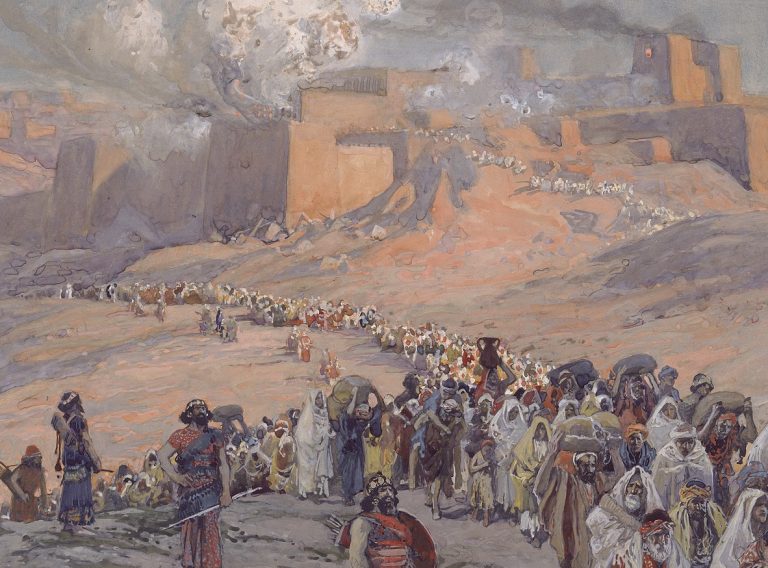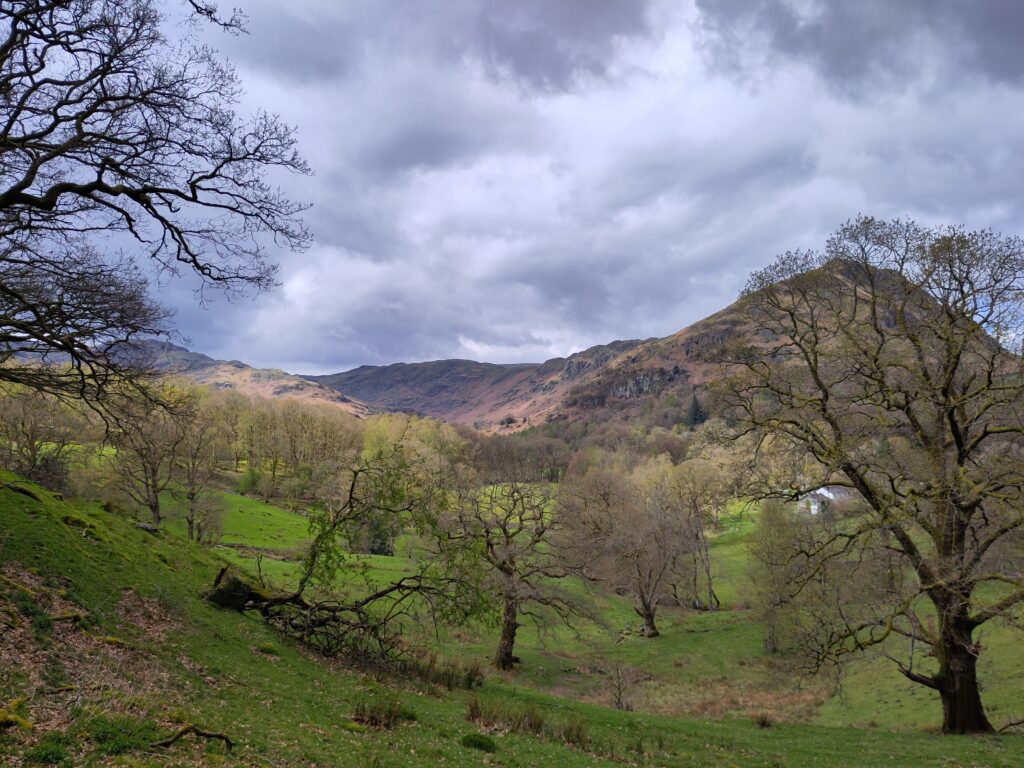The prophet Jeremiah lived through traumatic times. He saw the city of Jerusalem destroyed, and two waves of exiles, the Judean king among them, forcibly marched off to Babylon. His prophecies attempt to find meaning amid this devastation. His poetry gives voice to a people’s anguish and hopelessness:
My grief is beyond healing, my heart is sick within me. Hark, the cry of the daughter of my people from the length and breadth of the land: ‘Is the LORD not in Zion? Is her King not in her?’ (8:18-19)
He continually questions where God is to be found. One of his answers is that God was behind the aggressors, punishing Judah for its sins:
Your ways and your doings have brought this upon you. This is your doom, and it is bitter; it has reached your very heart. (4:18)
This is difficult territory – we need to be careful what we do with Jeremiah’s blaming of the victims. Kathleen O’Connor, a biblical scholar, explores Jeremiah’s language in the light of trauma and disaster studies. She writes:
When the poetry lays responsibility for toppling Judah upon the people, it moves victims out of despairing passivity … and shows them how to avoid similar perils in the future. Psychologists insist that taking responsibility for experiences of trauma and disaster can be helpful even when the analysis is inaccurate or wrong. Finding responsible parties projects order onto the universe and claims that behaviour has predictable results. This is, of course, far different than being blamed for disaster by outsiders.
This ‘rhetoric of responsibility’, however, is but one of the voices in a long, complex and contradictory book. Jeremiah approaches the violence and desolation from a number of angles, including drawing on his own personal turbulent relationship with God. In a series of passages labelled ‘confessions’, he speaks of the urgency of his calling:
If I say, ‘I will not mention him, or speak any more in his name,’ there is in my heart as it were a burning fire shut up in my bones, and I am weary with holding it in, and I cannot. (20:9)
His language is far from benign – he seems to portray himself as a woman raped by God and impregnated with a word he does not want:
O LORD, thou hast deceived me, and I was deceived; thou art stronger than I, and thou hast prevailed. (20:7)
In his despair, he sounds like Job:
Cursed be the day on which I was born! The day when my mother bore me, let it not be blessed! … Why did I come forth from the womb to see toil and sorrow, and spend my days in shame? (20:14, 18)
The book of Jeremiah, therefore, is no easy read. But it has survived because people have recognised that its anguished words, preserved by a defeated and exiled nation, possess an ability to speak to the human condition. The glimmers of hope, when they come, are hard-won:
For I will restore health to you, and your wounds I will heal, says the LORD, because they have called you an outcast: ‘It is Zion, for whom no one cares!’ (30:17)
Probably the best-known verse is 31:31 – ‘Behold, the days are coming, says the LORD, when I will make a new covenant with the house of Israel and the house of Judah’. These words have been understood quite differently within Jewish and Christian traditions. Just as there are many voices within the book, so there are many voices in the interpretation of Jeremiah. But however we understand the new covenant, it is worth remembering the depths of suffering out of which it was proclaimed. And maybe Jeremiah has something to say to our own troubled times.
Ann Conway-Jones is an honorary research fellow at the University of Birmingham and an associate tutor at Woodbrooke. She will be leading Fire in the Bones: Encountering the Prophet Jeremiah, 19 – 21 October.




